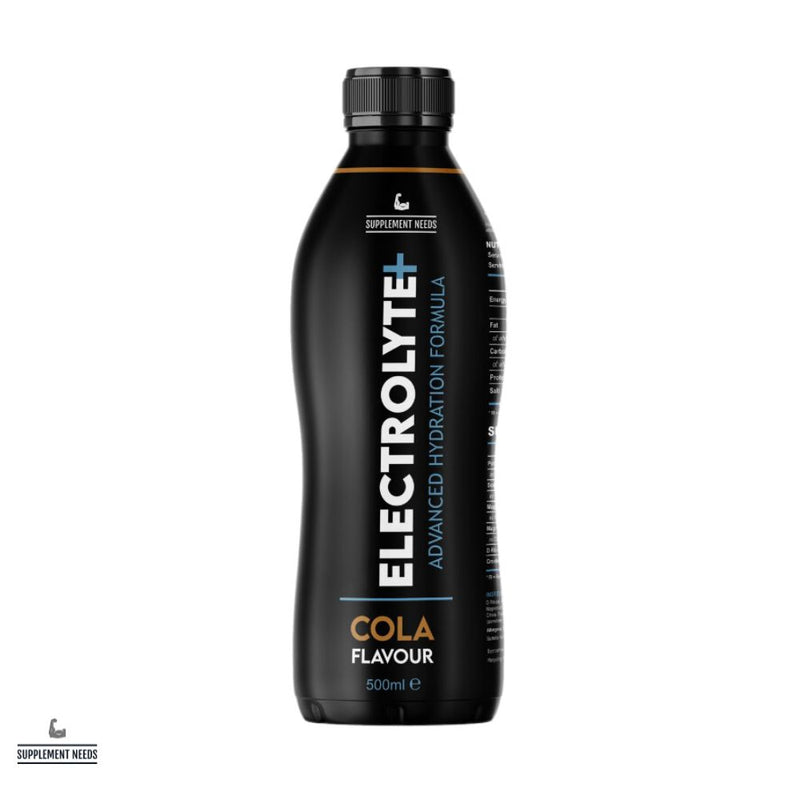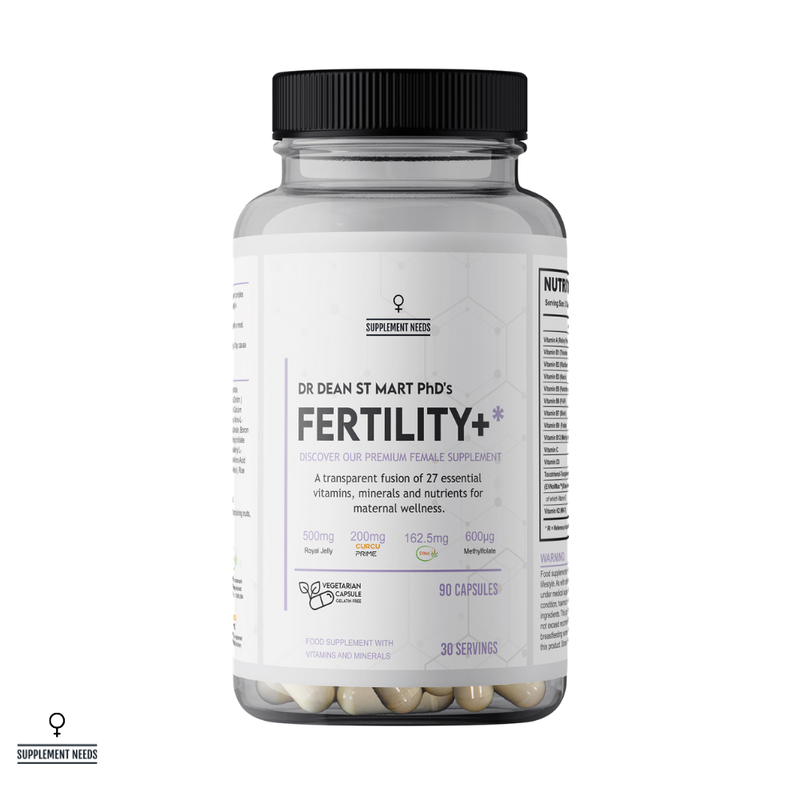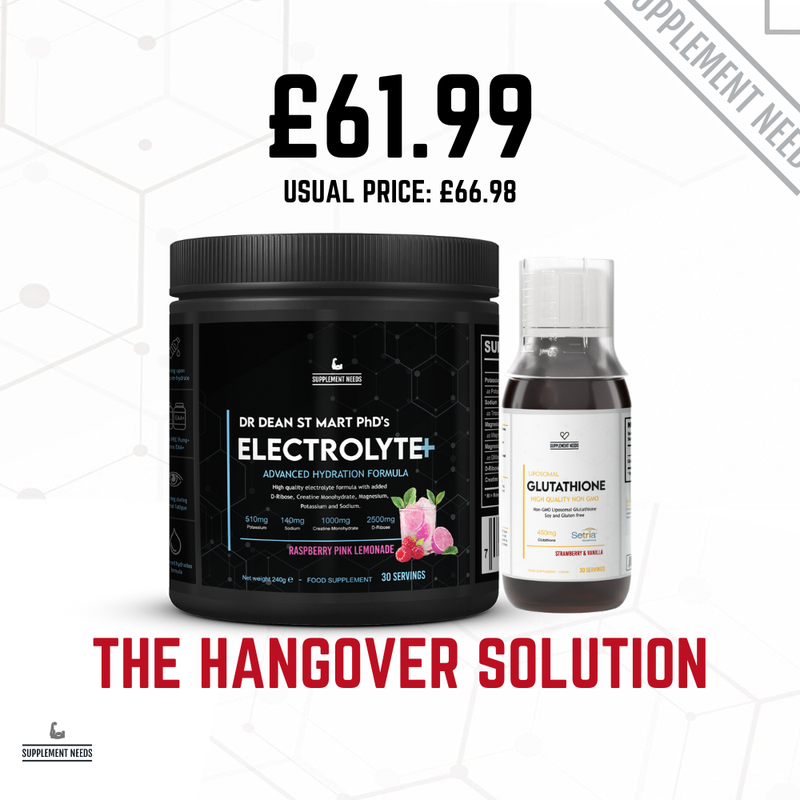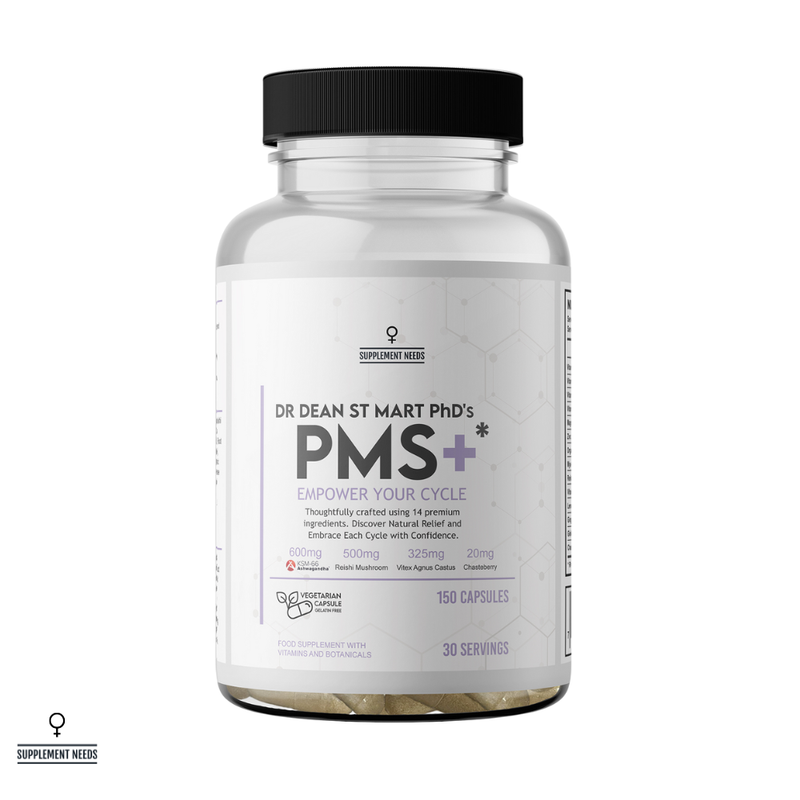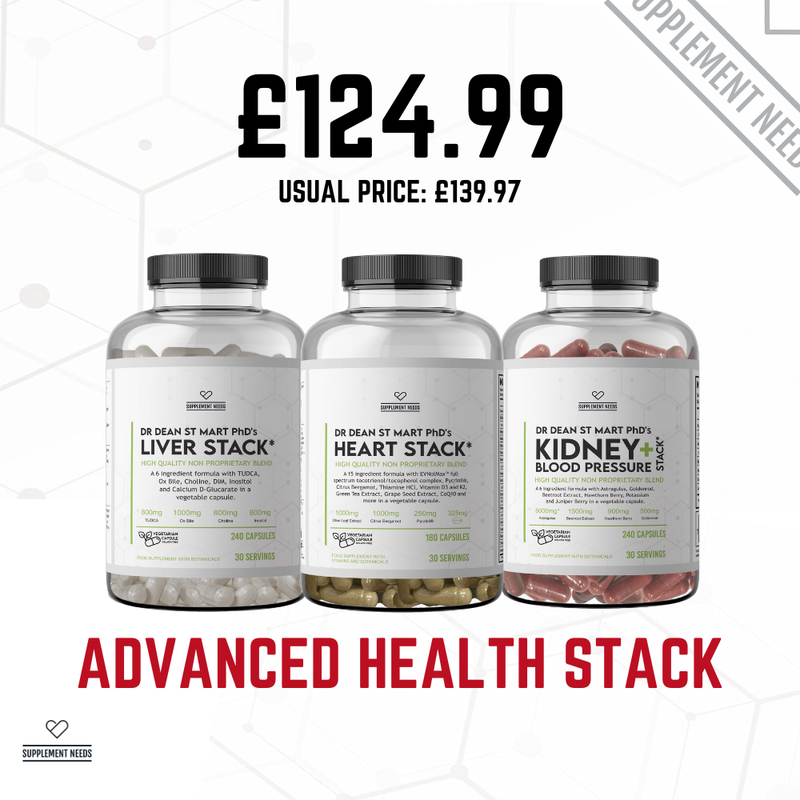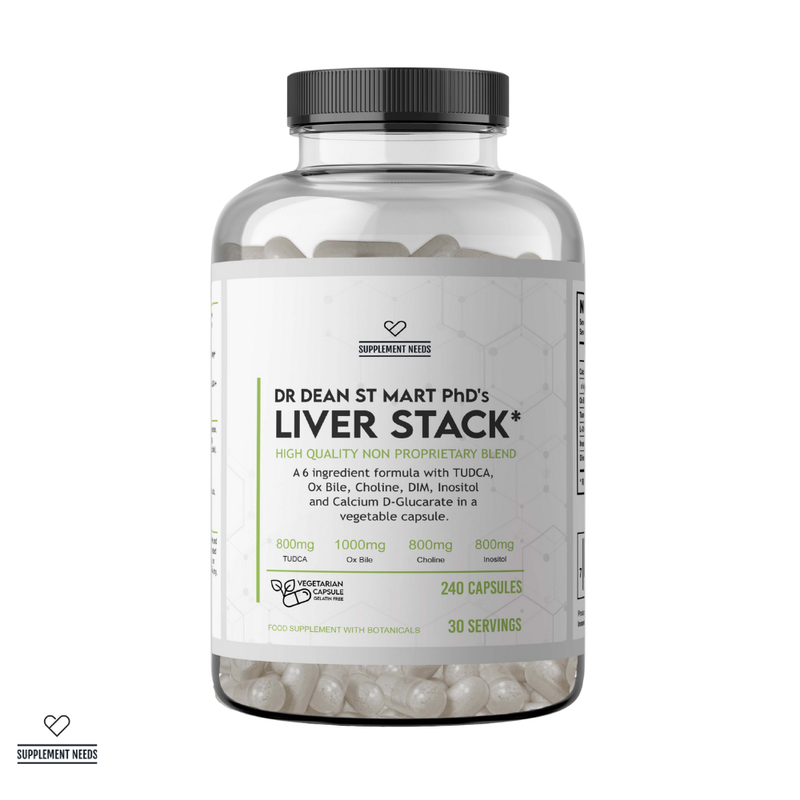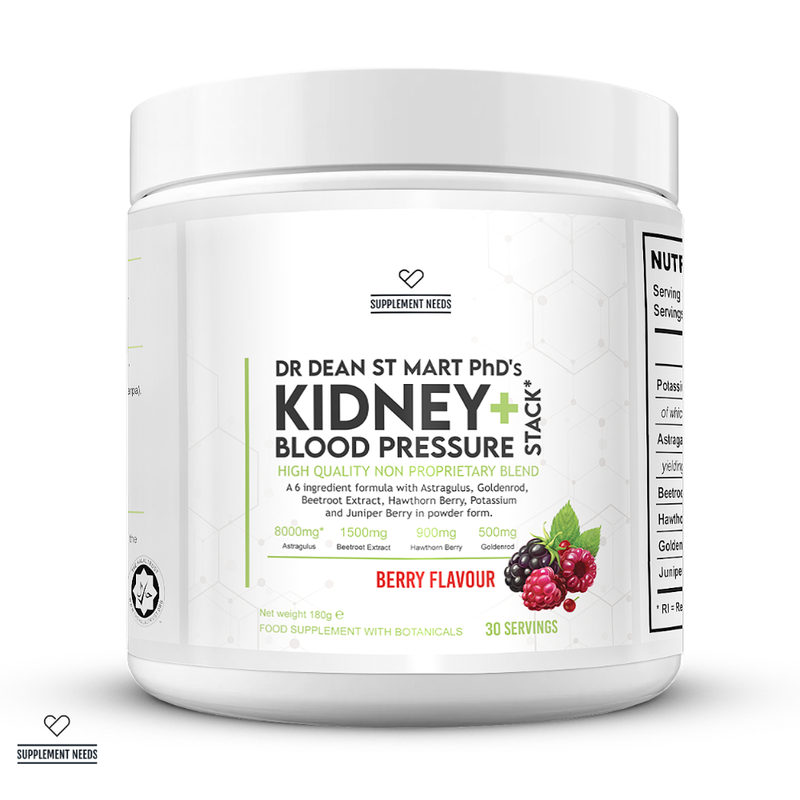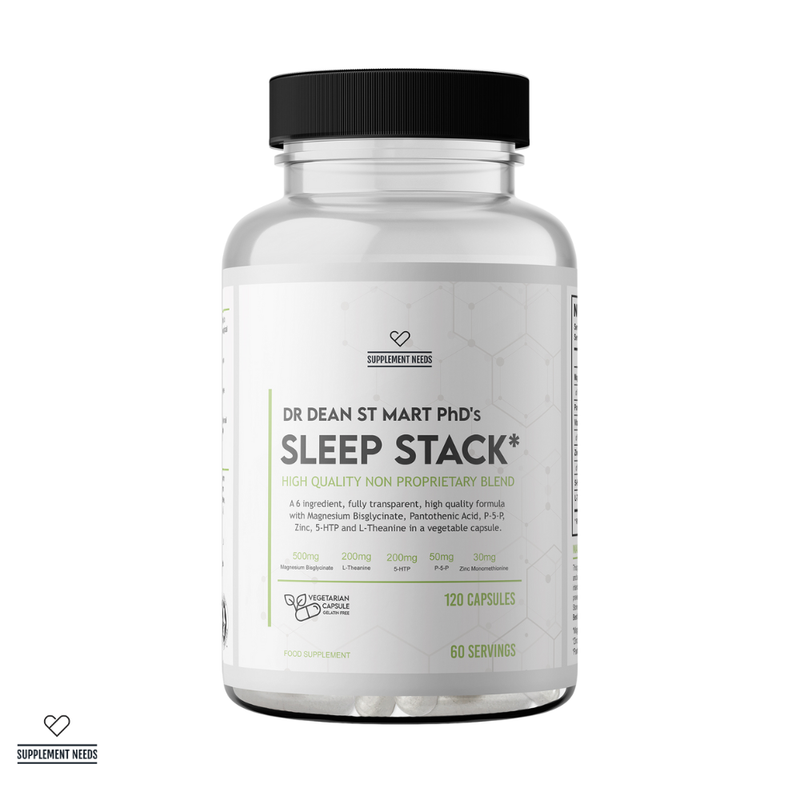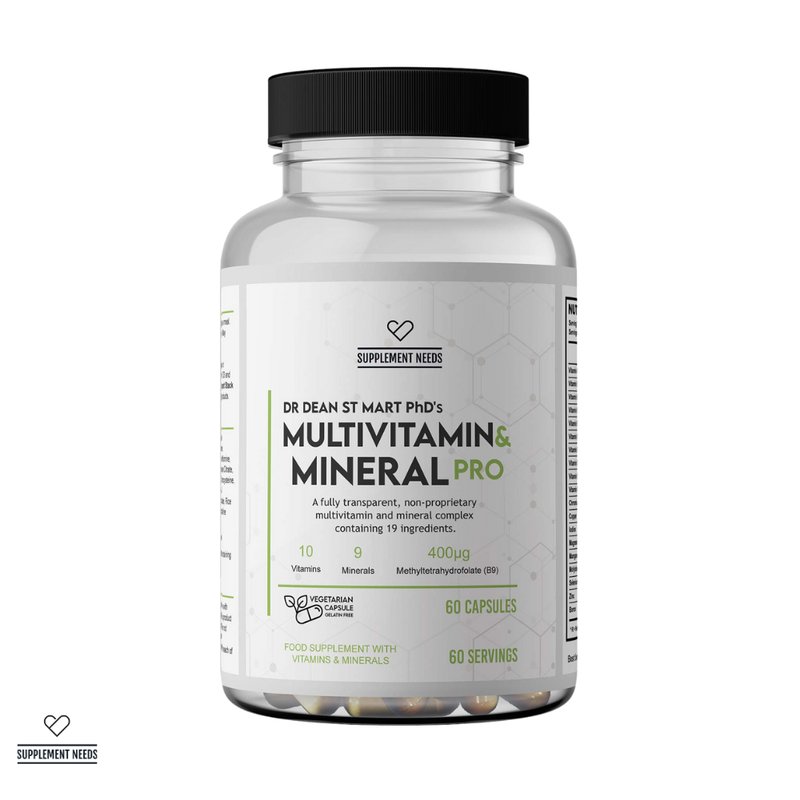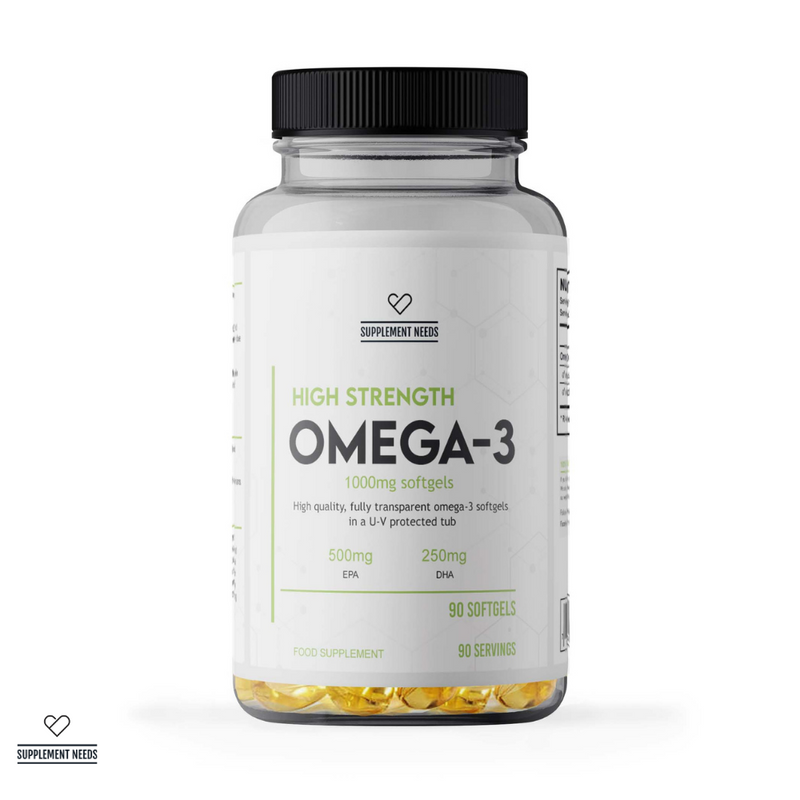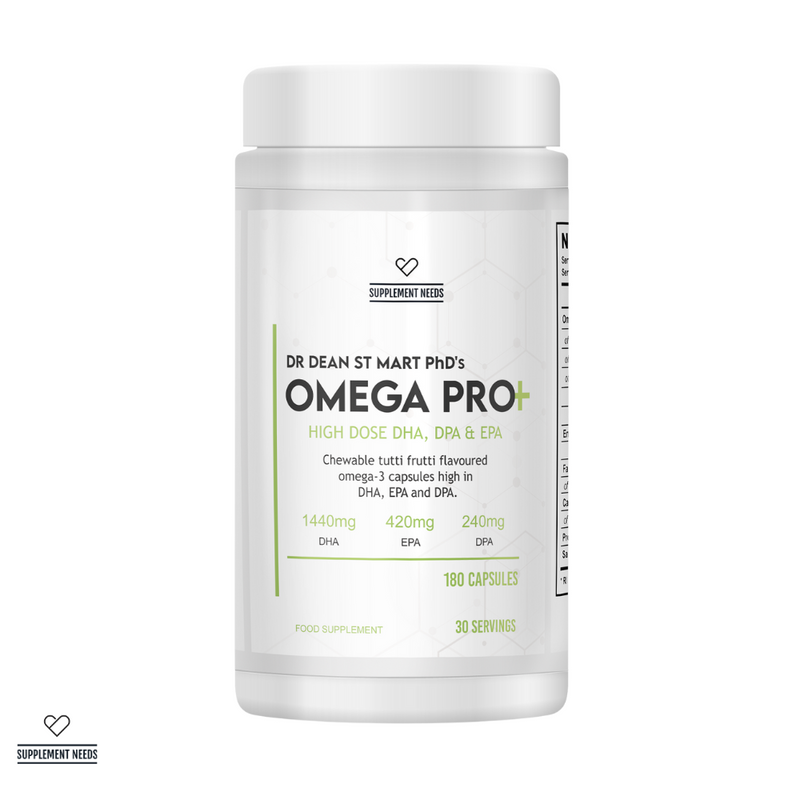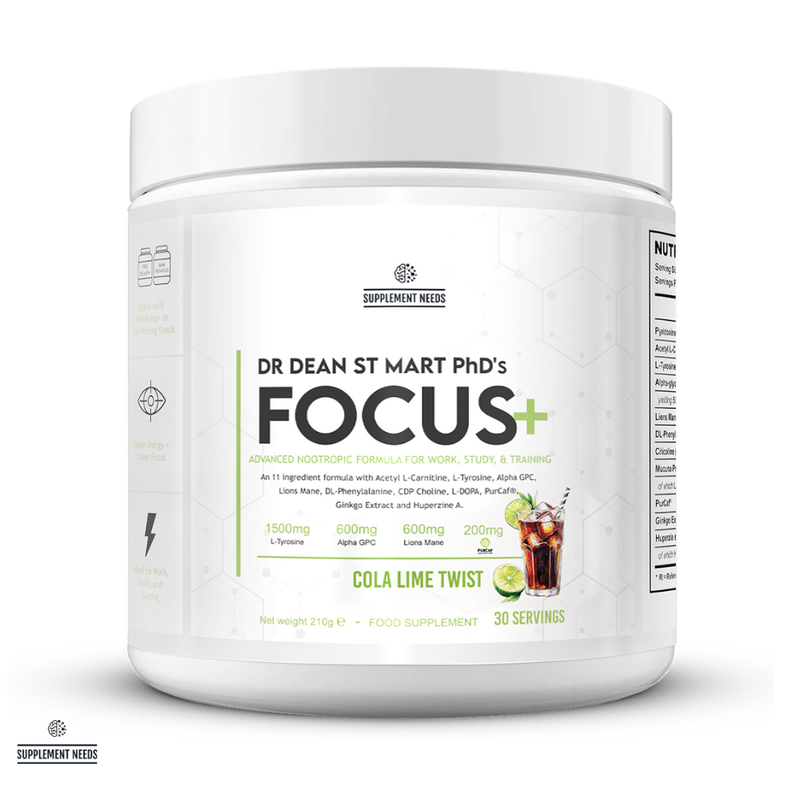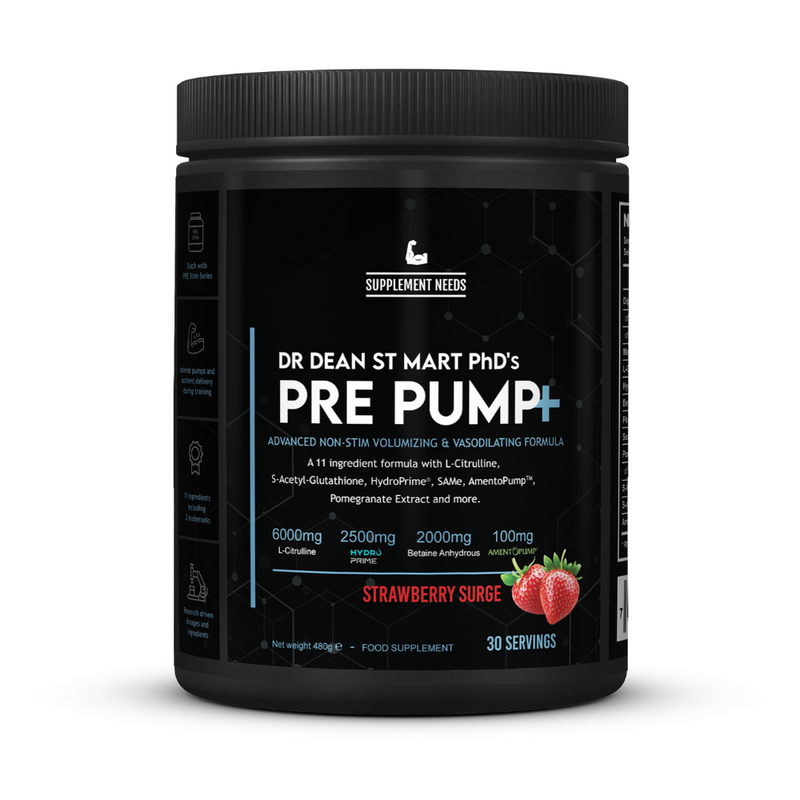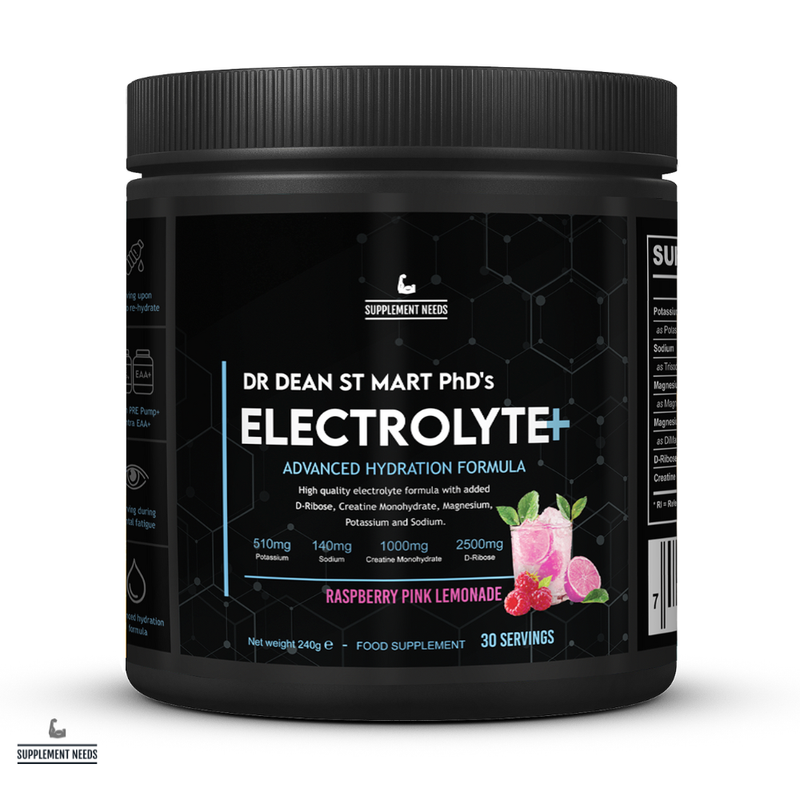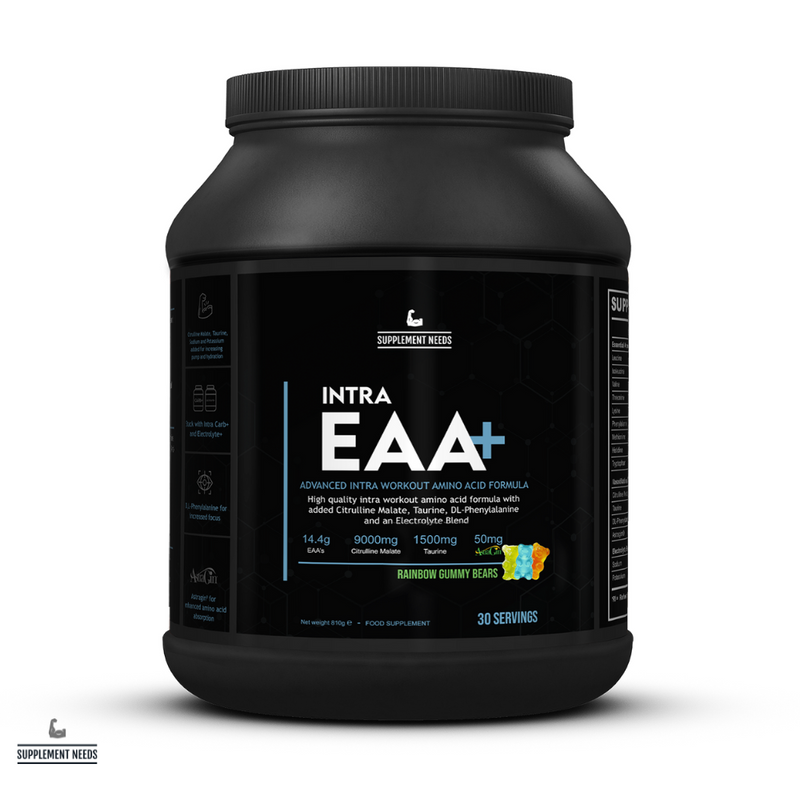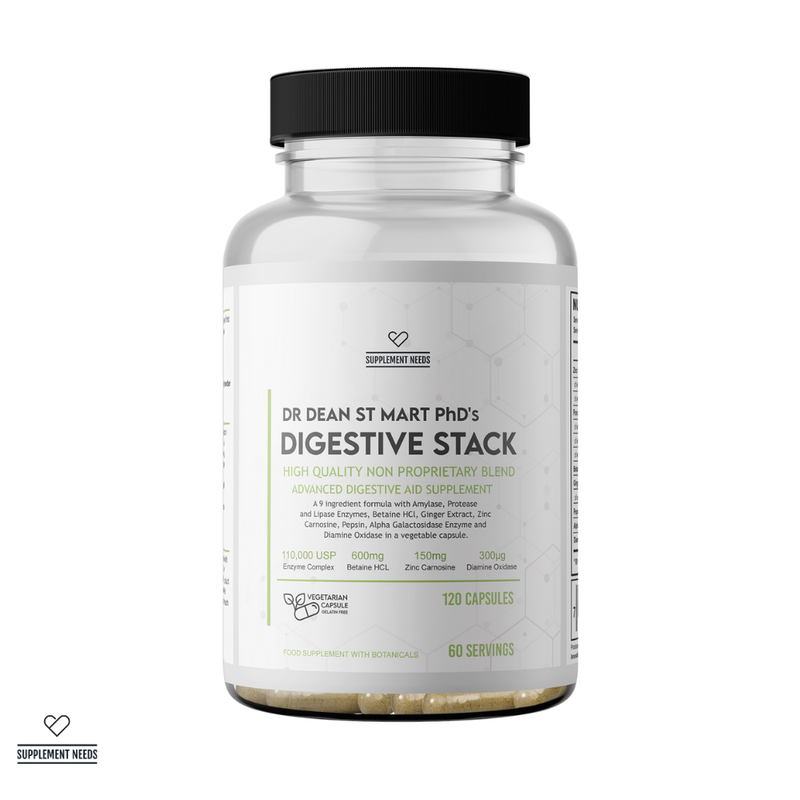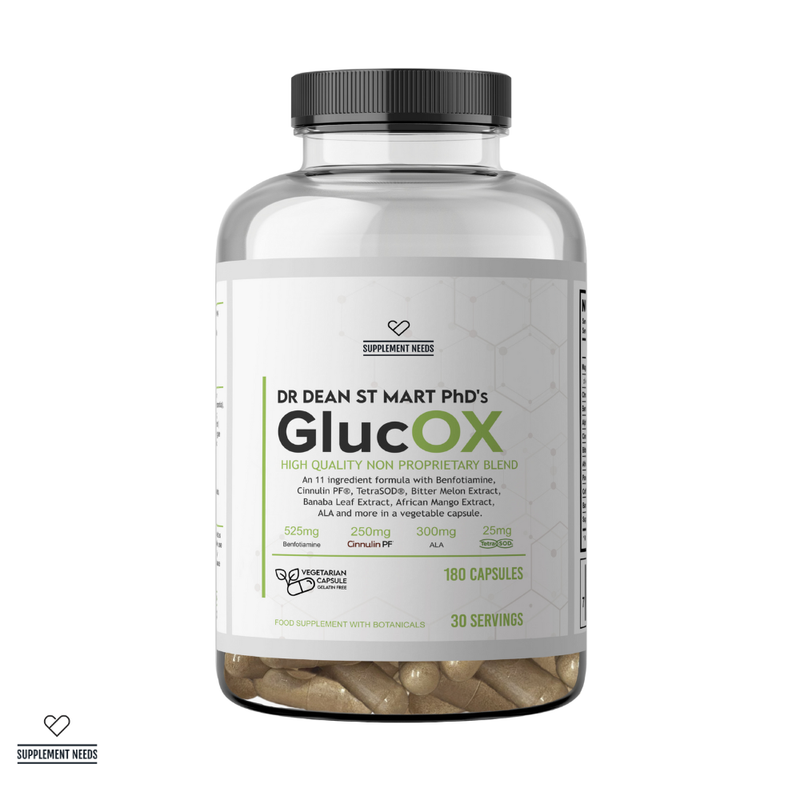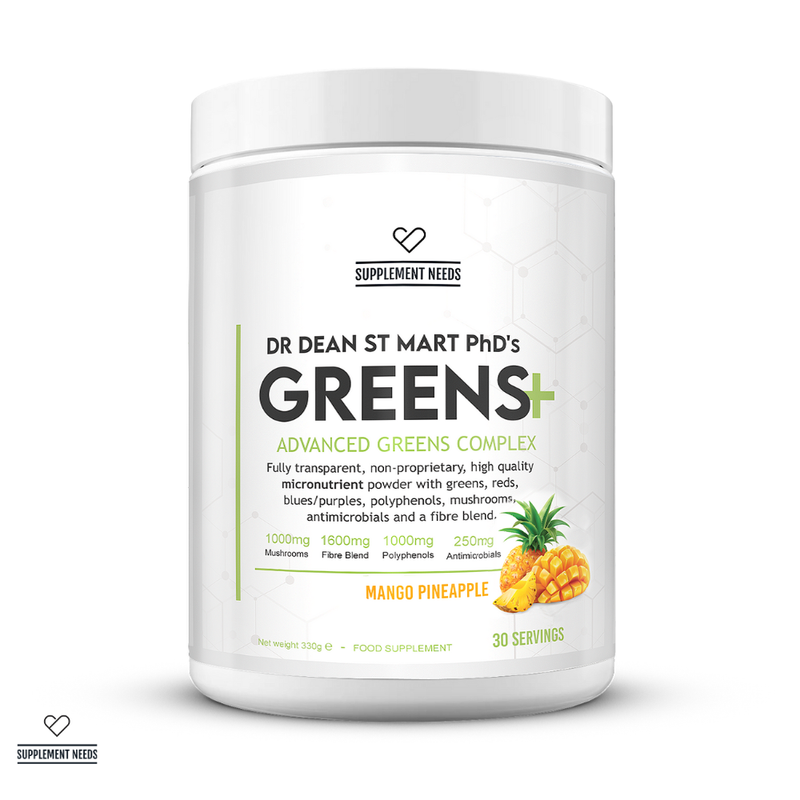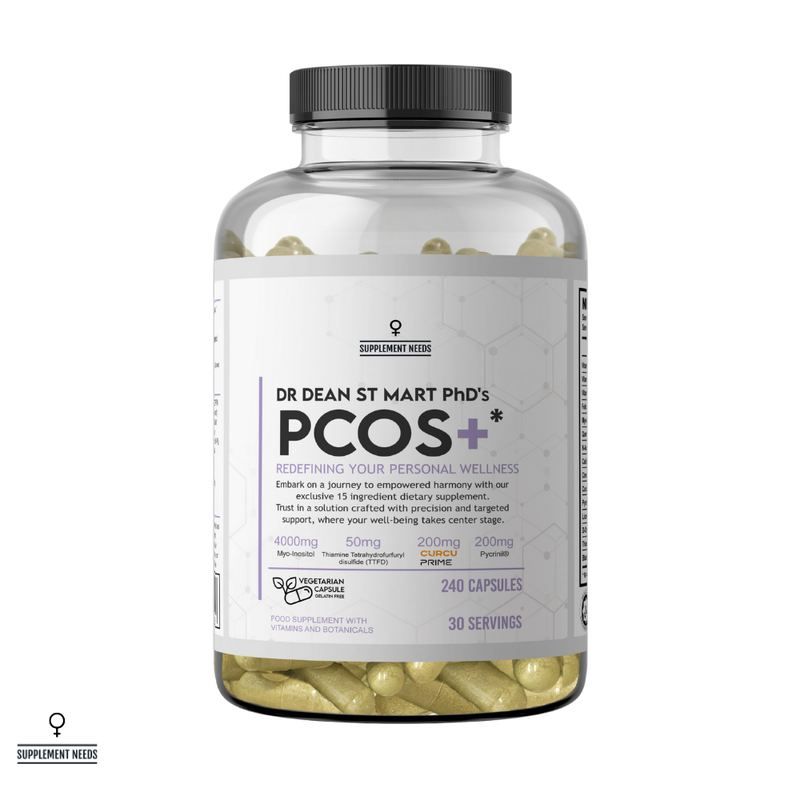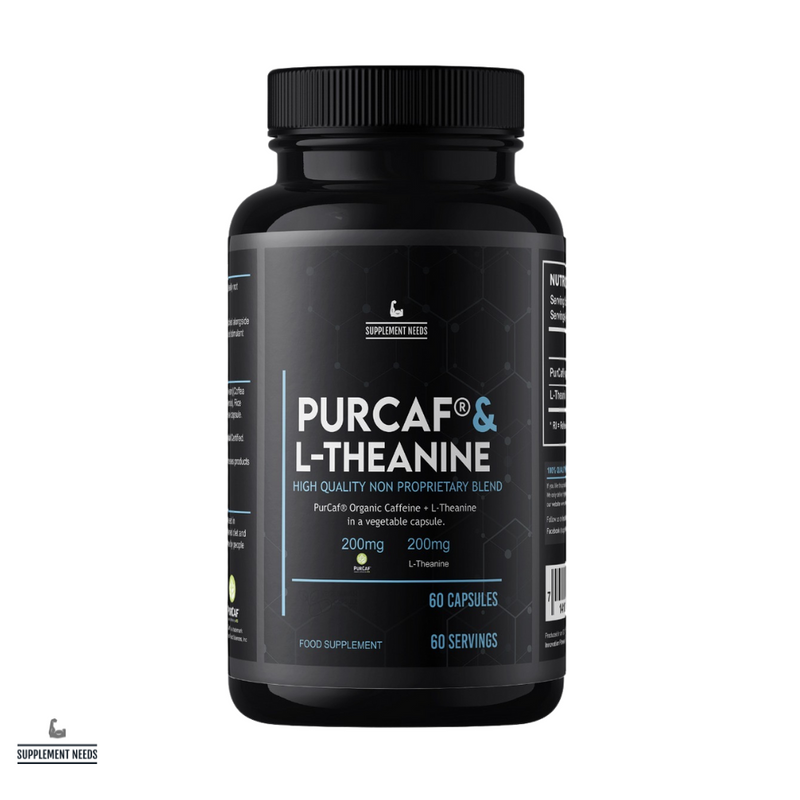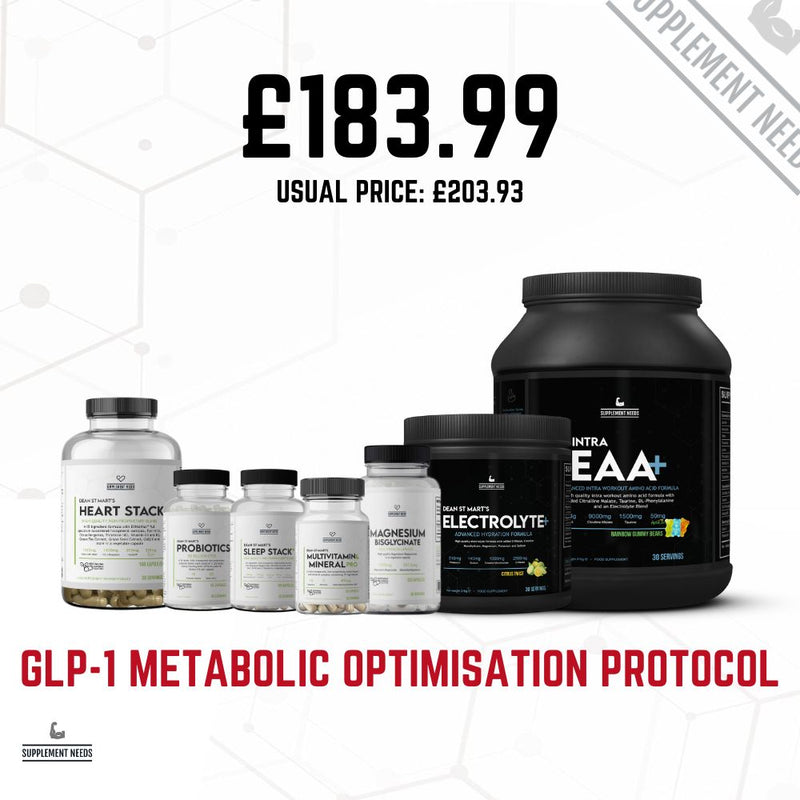CoQ10 is one of the lesser known nutrients; but that is definitely changing as people learn more about supplements that can support healthy bodily functions. Of course, the team at Supplement Needs is always here to offer you the latest information you need to make the best nutritional choices for your needs. So, what exactly is CoQ10? What does it do in the body, and more importantly, what are the potential benefits of CoQ10 supplements?
What is CoQ10?
Let’s start at the beginning: what is CoQ10?
The first thing you should know is that CoQ10 is referred to by a range of names; including, CoQ10, Coenzyme Q10, and Ubiquinone1. For ease, we will be using CoQ10 throughout this article.
As the name suggests, CoQ10 is a coenzyme. In scientific terms, this means that CoQ10 is a “fat-soluble, vitamin-like molecule naturally present in every cellular membrane within our bodies”.2 This is an important distinction, as enzymes and coenzymes are not the same.
An interlude: enzymes and coenzymes
Both enzymes and coenzymes are essential for completing chemical reactions in your cells; but they have different functions.
Enzymes are what are known as biological catalysts. This means they increase the rate of a chemical reaction (usually without being subsumed and destroyed in the reaction). On the other hand, coenzymes are considered ‘helper molecules’; they cannot trigger the reaction on their own, but instead support the enzyme to do their jobs.
Structurally, the primary difference is that enzymes are almost always protein-based3, whereas coenzymes are usually a vitamin-like compound.
To help you better understand this difference between enzymes and coenzymes, we’ve set out a handy comparison table below:
|
Enzymes |
Coenzymes |
|
|
Definition |
Biological catalysts, usually proteins (sometimes RNA), that speed up chemical reactions |
Small, non-protein organic molecules that assist enzymes in catalysing reactions |
|
Nature |
Protein (or ribozyme, RNA with catalytic activity) |
Organic molecules - often derived from vitamins (e.g. B Vitamins) |
|
Size |
Large macromolecules |
Small molecules |
|
Role in Reaction |
Provide the catalytic site and lower activation energy |
Act as carriers of electrons, atoms, or functional groups |
|
Consumed in Reaction? |
Not consumed; regenerated and reused |
Not permanently consumed; temporarily altered but then regenerated |
|
Specificity |
Highly specific to the reaction and substrate |
Often versatile, assisting with multiple enzymes in related reactions |
|
Examples |
Amylase, Lactase, DNA polymerase, Catalase |
CoQ10, Coenzyme A (from B5) |
|
Analogy |
The worker or machine carrying out a job |
The tool or assistant helping the worker to complete his job |
But what does this mean for CoQ10?
As a coenzyme, CoQ10 helps your body to complete a range of different reactions, from energy production to reducing oxidative stress. For that, though, we need to look at what CoQ10 does in the body…
What does CoQ10 do?
Research has shown that CoQ10 plays various roles in the body. Two of the most important are:
Energy production
There are a lot of chemicals and compounds required to make energy in the body; of which CoQ10 is a valuable one.
At the core of energy production, your body needs to create a compound called adenosine triphosphate, or ATP; because ATP has a high energy potential within the phosphate bonds. Breaking these phosphorous bonds via hydrolysis (a chemical reaction using water) releases plenty of energy for your cells to use4. ATP becomes ADP or further to AMP (adenosine diphosphate and adenosine monophosphate respectively), which is then recycled to make a circular reaction.

But, before you can use ATP in cellular respiration, you need to make it; which is where CoQ10 comes in.
CoQ10 is essential for passing electrons during a process called the electron transport chain5. This is a necessary part of a process called oxidative phosphorylation, and is what leads to the production of ATP in the mitochondria of your cells.
Fact: you’re probably familiar with mitochondria from school, where they’re described as the powerhouse of the cell. This is because of their essential role in the production of energy.
To put this in simpler terms, CoQ10 is effectively acting like a taxi service for electrons during the transport chain. The process works something like this:
-
CoQ10 receives electrons from chemical compounds called Complex I and II to become ubiquinol, which is a reduced form (i.e. it has gained electrons)6.
-
As ubiquinol, CoQ10 is then involved in another reaction with a compound called Complex III, where it gives away electrons (oxidation) and turns into ubiquinone.
Passing electrons this way helps to create something called a proton gradient7, which is in essence a way to accumulate energy required for a chemical reaction.
Antioxidant
CoQ10, or ubiquinone, is well-known as a valuable antioxidant that can help to protect against cellular free radical damage8. However, to understand the importance of antioxidants, we first need to look at molecules called free radicals.
Free radicals is a term used to describe molecules in the body that have an uneven number of electrons. These include some ROS (reactive oxygen species) and RNOS (reactive nitrogen oxide species)9. Some chemical reactions in the body naturally produce free radicals, particularly during periods of stress or inflammation and injury. They can also occur due to environmental factors; e.g. sun damage from UV rays, environmental toxins, cigarette smoke, to name a few10.
Why does this matter? Normally, molecules prefer to be balanced; this makes them more stable and less reactive. However, since they have an uneven number of electrons, some free radicals can become highly reactive as they’re effectively looking for a way to even their electron count.
The issue with free radicals is that they’re indiscriminate in where they get their electrons from, and will steal an electron from nearby healthy and stable molecules. If this happens too much, to the extent that free radicals are elevated to a level the body can’t manage, the resultant instability is called oxidative stress11. Oxidative stress has been linked to a number of human diseases, including heart disease, kidney disease, and cancer12.
To help your body counteract or prevent damage from oxidative stress, you need antioxidants. Like free radicals, these molecules are also missing an electron; but unlike free radicals, antioxidants don’t steal from other molecules. Instead, they scavenge their electrons from the unstable free radical species, helping both parties to regain their balance.
So, in simple terms, antioxidants are protective molecules that help to limit any damage from free radicals.
More specifically to CoQ10s role as an antioxidant, research suggests that it’s particularly important as antioxidant protection against lipoperoxidation, where free radicals react with fatty cells13. Excessive lipoperoxidation has been linked to the development of multiple skin diseases like psoriasis, vitiligo, and alopecia14.
What are the benefits of CoQ10 supplementation?
There are a plethora of benefits to including a CoQ10 supplement into your diet. For one, endogenous production of CoQ10 slows as you age, so it may be advantageous to add a readily available source (like a supplement) to your diet.
Reduce oxidative stress
As we already mentioned, CoQ10 is a valuable antioxidant to help reduce incidences of oxidative stress in the body. More specifically, these antioxidative properties can benefit your:
Heart health
Vascular oxidative stress affects the endothelial cells, which make up a thin layer on the walls of your blood vessels and heart. The excess stress can cause dysfunction and inflammation15, affecting how well your circulatory system works and affecting your heart health.
According to research, CoQ10 can “potentially increase the production of vital antioxidants, such as superoxide dismutase, an enzyme that effectively mitigates vascular oxidative stress in individuals with hypertension”16.
CoQ10 has also been observed to have a positive effect on heart failure patients, and the consistency of these observations suggests that it has a potential to be considered as an adjunct to conventional treatment programmes17.
Stackable heart health supplement:

Why not complement your CoQ10 supplement with Supplement Needs Heart Stack? Not only does Heart Stack contain CoQ10 in its own right (at 200mg per 6 capsule serving), but it:
-
Adds synergistic antioxidants, heart-function vitamins, and polyphenols that support vascular health and oxidative protection.
Brain health
While more research is required, preliminary studies have found that CoQ10 can have a neuroprotective effect (due to both its involvement in energy production and as an antioxidant).
Studies exploring the benefit of CoQ10 with regard to a variety of neurodegenerative diseases have found that supplementation was effective in improving symptoms for conditions like Cerebellar Ataxia (a gait and movement disorder), Alzheimer’s Disease (which is the leading cause of dementia), Parkinson’s Disease, and many more.
CoQ10 supplementation has also been shown to benefit migraine management, reducing the frequency and duration of a migraine attack19.
Stackable brain health supplement:

-
Boosts mitochondrial energy.
-
Has both anti-inflammatory and neuroprotective properties.
-
Amplifies CoQ10’s mitochondrial support - making it the perfect stacking partner.
Fertility
Female fertility naturally declines as you age, until you reach the end of menopause. This is for a range of physiological reasons20.
-
Females are born with a finite number of oocytes (the scientific term for female reproductive cells that become ovum when fertilised).
-
Oocyte quality (the viability with which they can become fertilised) also declines as you age.
Oocyte quality is important for safe, viable pregnancies; poor quality oocytes are less likely to implant onto the uterus walls, and there is an increased chance of early miscarriage. It also has an impact on the risk of chromosomal abnormalities and embryonic development.
Whilst there is nothing to be done about quantity, improving the quality of female reproductive cells can help with overall fertility, especially later in life.
Recent research into CoQ10 and fertility has shown some promising results; one systematic review and meta-analysis concluded that supplementation with CoQ10 may increase clinical pregnancy results during assisted reproductive procedures21. Another suggests that CoQ10, due to its role in energy production and antioxidant protection, may help to improve oocyte quality and provide a more favourable environment for implantation during fertility treatments22.
To put it simply, while the research is very much still in its infancy, there are promising results so far to suggest that CoQ10 may be able to help with egg quality and infertility treatments.
Stackable fertility supplement:

Should you be looking for fertility-focused supplements to stack alongside CoQ10, then check out Supplement Needs Fertility+. This latter supplement complements CoQ10 in a number of ways. These include:
-
Reinforces reproductive mechanisms: Fertility+ adds vitamins and minerals essential for egg development, further reinforcing the egg-quality boosting processes of CoQ10.
-
Nutrient matrix: Fertility+ in combination with CoQ10 can create a ‘nutrient matrix’, consisting of antioxidants, hormone-balancing vitamins, and reproductive-friendly minerals all beneficial to fertility.
Exercise and recovery
When you exercise, it’s fair to say your body goes through a lot. Your muscles have to contract and release, your cardiovascular system steps up to get your blood pumping, and your lungs are busy drawing in oxygen to make energy.
If you’re a fitness fanatic, or keen gym goer, you’re likely aware of many different dietary supplements that are there to support your body before, during, and after a workout to help you perform at your best.
Interestingly, though, there is evidence to suggest that CoQ10 can help. While not a direct ergogenic aid, the way CoQ10 works in your body can help by:
-
Ensuring your body is able to produce enough energy: CoQ10’s involvement in ATP production means that having a ready supply is important to make sure your body can generate the energy it needs to move. This can help boost anaerobic performance, and reduce fatigue markers23.
-
Improve post-exercise recovery: as an antioxidant, CoQ10 has been shown to reduce post-exercise inflammatory markers24, oxidative stress, and the biomarkers of exercise-induced muscle damage (EIMD)25.
Are there downsides to taking CoQ10?
However, naturally where there are benefits, there will be a selection of downsides. Current research suggests that CoQ10 supplements are “generally well-tolerated with only minor and infrequent adverse effects, including stomach upset, nausea, vomiting, and diarrhoea.”26
However, there are some drug-drug interactions you should be aware of before adding CoQ10 into your diet.
Due to sharing a chemically-similar structure to Vitamin K, there are some reports that CoQ10 can potentially interact with warfarin and other anticoagulants. If you take these medications, CoQ10 may potentially reduce their efficacy, which should be avoided.
Additionally, current literature suggests that27:
-
CoQ10 should be avoided by people taking chemotherapeutic drugs, as there is insufficient data about their interactions.
-
People with diabetes, or known hypoglycaemic episodes, should exercise caution as CoQ10 has been shown to potentially reduce fasting blood glucose levels.
Buying the best: liposomal CoQ10
CoQ10 has a complex absorption process in the body, from first ingestion to transport in the blood and access to the cells. Additionally, research has found that the absorption and bioavailability of CoQ10 is highly variable from person to person28.
However, there are some ways you can improve the absorption of your chosen CoQ10 supplement; such as through the liposomal process.
Liposomal supplements are chiefly composed of two parts. These are the active ingredient (in this case CoQ10), and the delivery method (in this case via liposomes, or fat compounds).
Liposomal supplements use these fat compounds to encapsulate the active ingredient and help your body to absorb it more efficiently and effectively. This is important for supplement delivery, as it means you’re absorbing more of the active ingredient, rather than passing it through your body and out again.
If you’re interested, you can discover more about What Does it Mean When a Supplement is Liposomal? from our blog…
At Supplement Needs, our Liposomal CoQ10 (Ubiquinone) is expertly formulated with our exclusive patented technology to micro-encapsulate the ingredients in non-hydrogenated sunflower phosphatidylcholine-derived liposomes. While this sounds quite technical, what this means is that our CoQ10 supplement is designed to permeate cell walls for improved bioavailability.

Why choose Supplement Needs?
When you’re contemplating adding new supplements to your diet, you want to ensure you’re getting the best. At Supplement Needs, we are committed to superior quality and research-driven formulas; which means that we pay attention to every little detail of our products before they reach you.
The proof? Well…
-
🔍 Explicit ingredient transparency: we have nothing to hide, which is why you can see exactly what is in each supplement you buy. We include the providence of ingredients (including which part of a plant, or the available form of the ingredient), and the dosage, on each bottle, so you know everything about your chosen supplement. What other brands can say the same?
-
💧 Premium bioavailability: to get the most from each dose, Supplement Needs uses highly available bioavailable forms of each ingredient where appropriate. Bioavailability describes how well your body can absorb molecules and put them to work in the body; the higher the bioavailability, the more likely your body is to absorb the ingredient.
-
🏭 Top quality manufacture: quality doesn’t just come from ingredients; it’s also about how products are made. At Supplement Needs, our products are manufactured to the highest standards, including GMP (Good Manufacturing Practices) and ISO 22000:2018.
-
🎓 Expert research and development: Supplement Needs doesn’t just pay lip service to science. All of our products are developed by renowned industry leader Dr. Dean St Mart PhD. Dr Dean holds a double first class honours degree in chemistry and pharmaceutical chemistry, and a PhD in synthetic organic chemistry and fluorescence spectroscopy.
What are you waiting for? Discover our exceptional range of everything from Joint Health to Organ Support, and of course our superb range of Liposomal Supplements today to invest in your future health…
Explore our Health Needs supplements today
For more insights and the latest information about supplements, read the Supplement Needs blog…
Could Supplements Make You More Productive? A Deep Dive into Productivity Supplements | Alpha GPC: Decoding the Hype (and the Science) | Busting the Biggest Supplement Myths
Disclaimer
The information on this website should not be used as a substitute for professional medical advice. If you have any questions about your health, or are planning to change your diet, please contact your doctor.
References
1. National Library of Medicine. Coenzyme Q10 [online]. Available at: https://www.ncbi.nlm.nih.gov/books/NBK531491/ (Accessed on 2nd September 2025).
2. Sood, B., Preeti, P., & Keenaghan, M., 2024, ‘Coenzyme Q10’, StatPearls [Internet]. Available at: https://www.ncbi.nlm.nih.gov/books/NBK531491/. Accessed on 28th August 2025.
3. National Human Genome Research Institute, 2025, ‘Enzyme’. Available at: http://genome.gov/genetics-glossary/Enzyme. Accessed on 28th August 2025.
4. Dunn, J., & Grider, M.H., 2023, ‘Physiology, Adenosine Triphosphate’, StatPearls [Internet]. Available at: https://www.ncbi.nlm.nih.gov/books/NBK553175/. Accessed on 28th August 2025.
5. Ahmad, M., Wolberg, A., & Kahwaji, C.I., 2023, ‘Biochemistry, Electron Transport Chain’, StatPearls [Internet]. Available at: https://www.ncbi.nlm.nih.gov/books/NBK526105/. Accessed on 28th August 2025.
6. Watanabe, C., et al., 2023, ‘Total and reduced/oxidized forms of coenzyme Q10 in fibroblasts of patients with mitochondrial disease’, Mol Genet Metab Rep., 34:100951. Available at: https://pmc.ncbi.nlm.nih.gov/articles/PMC9826971/. Accessed on 28th August 2025.
7. Wikipedia Online, 2025, ‘Electrochemical Gradient’. Available at: https://en.wikipedia.org/wiki/Electrochemical_gradient. Accessed on 28th August 2025.
8. National Cancer Institute Online, ‘Ubiquinone’. Available at: https://www.cancer.gov/publications/dictionaries/cancer-terms/def/ubiquinone. Accessed on 28th August 2025.
9. Stone, W.L., Pham, T., & Mohiuddin, S.S., 2023, ‘Biochemistry, Antioxidants’, StatPearls [Internet]. Available at: https://www.ncbi.nlm.nih.gov/books/NBK541064/. Accessed on 29th August 2025.
10. Cleveland Clinic Health Essentials Online, 2022, ‘Why You Should Care About Free Radicals’. Available at: https://health.clevelandclinic.org/free-radicals. Accessed on 29th August 2025.
11. Alkadi, H., 2020, ‘A Review on Free Radicals and Antioxidants’, Infect Disord Drug Targets., 20(1):16-26. Available at: https://pubmed.ncbi.nlm.nih.gov/29952268/. Accessed on 29th August 2025.
12. Cleveland Clinic Online, 2024, ‘Oxidative Stress’. Available at: https://my.clevelandclinic.org/health/articles/oxidative-stress. Accessed on 29th August 2025.
13. Aaseth, J., Alexander, J., & Alehagen, U., 2021, ‘Coenzyme Q10 supplementation - In ageing and disease’, Mechanisms of Ageing and Development, 197:111521. Available at: https://www.sciencedirect.com/science/article/pii/S0047637421000932. Accessed on 29th August 2025.
14. Li Pomi, F., et al., 2025, ‘Oxidative Stress and Skin Diseases: The Role of Lipid Peroxidation’, Antioxidants, 14(5):555. Available at: https://www.mdpi.com/2076-3921/14/5/555. Accessed on 29th August 2025.
15. Sena, C.M., et al., 2018, ‘Vascular Oxidative Stress: Impact and Therapeutic Approaches’, Front Physiol., 9:1668. Available at: https://pmc.ncbi.nlm.nih.gov/articles/PMC6288353/. Accessed on 29th August 2025.
16. Sood, B., Preeti, P., & Keenaghan, M., 2024, ‘Coenzyme Q10’, StatPearls [Internet]. Available at: https://www.ncbi.nlm.nih.gov/books/NBK531491/. Accessed on 27th August 2025.
17. Di Lorenzo, A., et al., 2020, ‘Clinical Evidence for Q10 Coenzyme Supplementation in Heart Failure: From Energetics to Functional Improvement’, J Clin Med., 9(5):1266. Available at: https://pmc.ncbi.nlm.nih.gov/articles/PMC7287951/. Accessed on 29th August 2025.
18. Ebrahimi, A., et al., 2023, ‘Involvement of Coenzyme Q10 in Various Neurodegenerative and Psychiatric Diseases’, Biochem Res Int., 3310874. Available at: https://pmc.ncbi.nlm.nih.gov/articles/PMC10632062/. Accessed on 29th August 2025.
19. Sazali, A., et al., 2021, ‘Coenzyme Q10 supplementation for prophylaxis in adult patients with migraine – a meta-analysis’, BMJ Open, 11(1):e039358. Available at: https://pmc.ncbi.nlm.nih.gov/articles/PMC7786797/. Accessed on 29th August 2025.
20. Owen, A., Carlson, K., & Sparzak, P.B., 2024, ‘Age-Related Fertility Decline’, StatPearls [Internet]. Available at: https://www.ncbi.nlm.nih.gov/books/NBK576440/. Accessed on 29th August 2025.
21. Florou, P., et al., 2020, ‘Does coenzyme Q10 supplementation improve fertility outcomes in women undergoing assisted reproductive technology procedures? A systematic review and meta-analysis of randomized-controlled trials’, J Assist Reprod Genet., 37(10): 2377-2387. Available at: https://pmc.ncbi.nlm.nih.gov/articles/PMC7550497/. Accessed on 29th August 2025.
22. Rodríguez-Varela, C., & Labarta, E., 2021, ‘Does Coenzyme Q10 Supplementation Improve Human Oocyte Quality?’, Int J Mol Sci., 22(17):9541. Available at: https://pmc.ncbi.nlm.nih.gov/articles/PMC8431086/. Accessed on 29th August 2025.
23. Fernandes, M. S.d.S., et al., 2023, ‘Coenzyme Q10 Supplementation in Athletes: A Systematic Review’, Nutrients, 15(18):3990. Available at: https://www.mdpi.com/2072-6643/15/18/3990. Accessed on 29th August 2025.
24. Drobnic, F., et al., 2022, ‘Coenzyme Q10 Supplementation and Its Impact on Exercise and Sport Performance in Humans: A Recovery or a Performance-Enhancing Molecule?’, Nutrients, 14(9):1811. Available at: https://pmc.ncbi.nlm.nih.gov/articles/PMC9104583/. Accessed on 29th August 2025.
25. Talebi, S., et al., 2024, ‘The effects of coenzyme Q10 supplementation on biomarkers of exercise-induced muscle damage, physical performance, and oxidative stress: A GRADE-assessed systematic review and dose-response meta-analysis of randomized controlled trials’, Clinical Nutrition ESPEN, 60:122-134. Available at: https://www.sciencedirect.com/science/article/abs/pii/S2405457724000184. Accessed on 29th August 2025.
26. Sood, B., Preeti, P., & Keenaghan, M., 2024, ‘Coenzyme Q10’, StatPearls [Internet]. Available at: https://www.ncbi.nlm.nih.gov/books/NBK531491/. Accessed on 27th August 2025.
27. ibid.
28. Mantle, D., & Dybring, A., 2020, ‘Bioavailability of CoenzymesQ10: An Overview of the Absorption Process and Subsequent Metabolism’, Antioxidants (Basel)., 9(5):386. Available at: https://pmc.ncbi.nlm.nih.gov/articles/PMC7278738/. Accessed on 27th August 2025.
